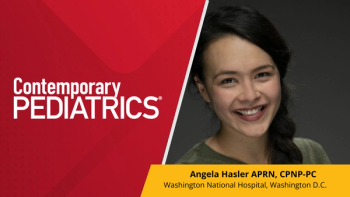
Autism Spectrum Disorders: What's New and What to Do?
Thirty to forty percent of children who are diagnosed and receive therapy for autism-spectrum disorders can recover, according to Chris P. Johnson, MD, of the University of Texas Health Science Center and San Antonio.
Thirty to forty percent of children who are diagnosed and receive therapy for autism-spectrum disorders can recover, according to Chris P. Johnson, MD, of the University of Texas Health Science Center and San Antonio.
"I do not mean cure," she emphasized. But, such recovered children can perhaps be in the same classrooms as their peers, and live more of an average life than a child with more severe autism. With one in 150 children currently being on the autistic spectrum disorder, this means better lives for millions of kids.
Dr. Johnson accepted that the time for a pediatric well-child visit was under 20 minutes, with more and more being crammed into that time. Autism screening can be started with a form filled out in the waiting room. A child who has none of the four main concerns in an autism-treatment algorithm has passed the screening.
If a child does have one of more of the four points - a sibling with autism, parental concern, your concern, or other caregivers' concern - then make a special appointment with them, preferably before the 18-month checkup, to talk in greater detail.
How to screen for infants? Signs such as not turning to one's name, not pointing or looking at what you point out, and not engaging in back-and-forth babbling are warning signs. Practitioners can also check with parents to ensure their child is hitting all developmental milestones - the word "autism" need not be mentioned.
Once a diagnosis of autism is made, a therapist will usually play a greater role in the child's ongoing development than a pediatrician. But MDs need to be aware of special issues of autistic children. Some parents will be wary of vaccines. Ongoing surveillance needs to be kept. Lead screens may have to be routine, since the hand-mouth impulse may continue well into childhood.
"Moss of you are caring for at least two or three children with autism," Dr. Johnson said. Earlier intervention can lead to an improved prognosis for some of these children.
Newsletter
Access practical, evidence-based guidance to support better care for our youngest patients. Join our email list for the latest clinical updates.








